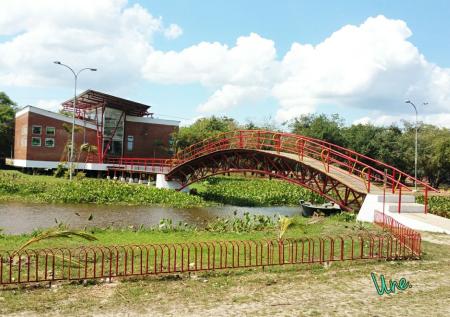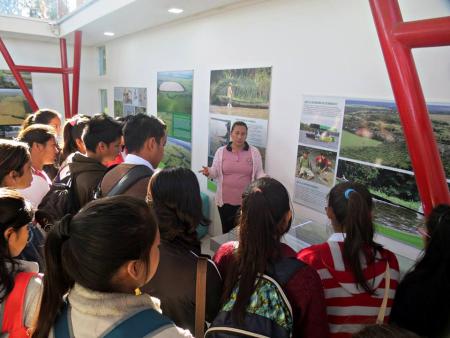New wetland educational center inaugurated in Trinidad, Bolivia

An innovative, new environmental interpretation center has just opened in the city of Trinidad, which focuses on Bolivia’s network of internationally important wetlands. The country boasts 11 Ramsar Sites that are protected under the Ramsar Convention, covering 14.8 million hectares.
Designed and implemented by the Trinidad city government in collaboration with WWF-Bolivia, the centre – the first of its kind in the country – promotes the environmental, cultural and social values of Ramsar sites by providing critical information in an entertaining and innovative way.
Named Une – which means water in the local mojeño-trinitario language – the centre is located inside the Pantanal Park, a green area in the city of Trinidad, considered the gateway to the largest Ramsar Wetlands complex in the world, Llanos de Moxos.
The center provides general information on the process of wetland formation; landscape attributes, related species, changes produced over time and their relationship with local inhabitants, and their cultural and economic importance.
It is envisioned as a space to develop environmental education activities, disseminate information and mobilize citizens around issues related to the Ramsar protected wetlands.
WWF Bolivia was responsible for the technical support, training of staff, content definition and provision of equipment, while the Trinidad government oversaw the construction process, hiring of staff, and institutional support to ensure the sustainability of the centre.
The implementation of this initiative was made possible thanks to funding from WWF International and the Wetlands for the Future Fund of the Ramsar Secretariat, with the support of the United States Fish and Wildlife Service.

The implementation of this initiative was possible thanks to funding from the WWF International and the Wetlands for the Future Fund of the Ramsar Convention, with the support of the United States Fish and Wildlife Service.
WWF Bolivia provided the technical support, staff training, content definition and provision of the equipment. The municipal government of Trinidad provided the infrastructure, hiring of trained staff, and institutional support to ensure the sustainability of the center.